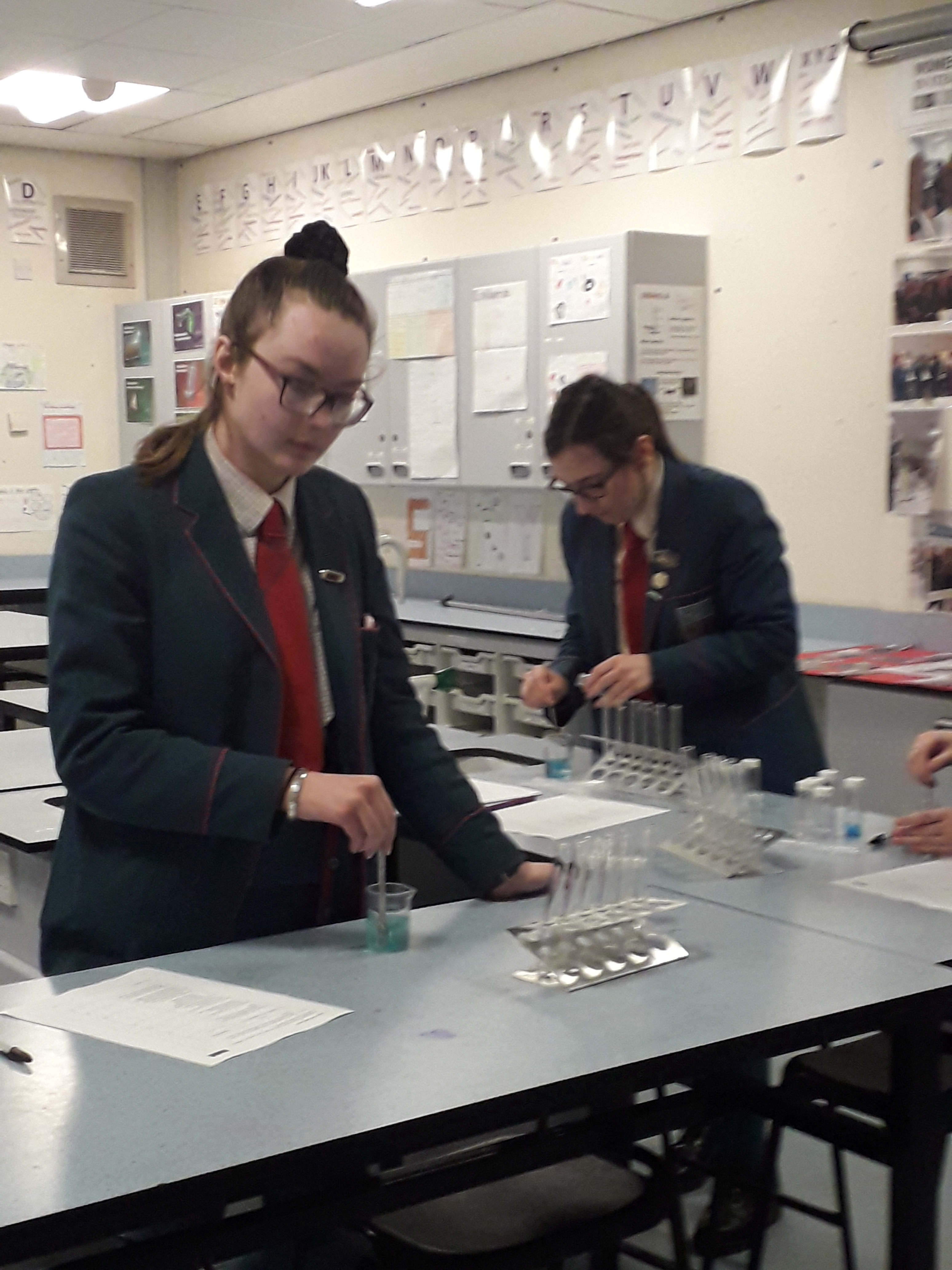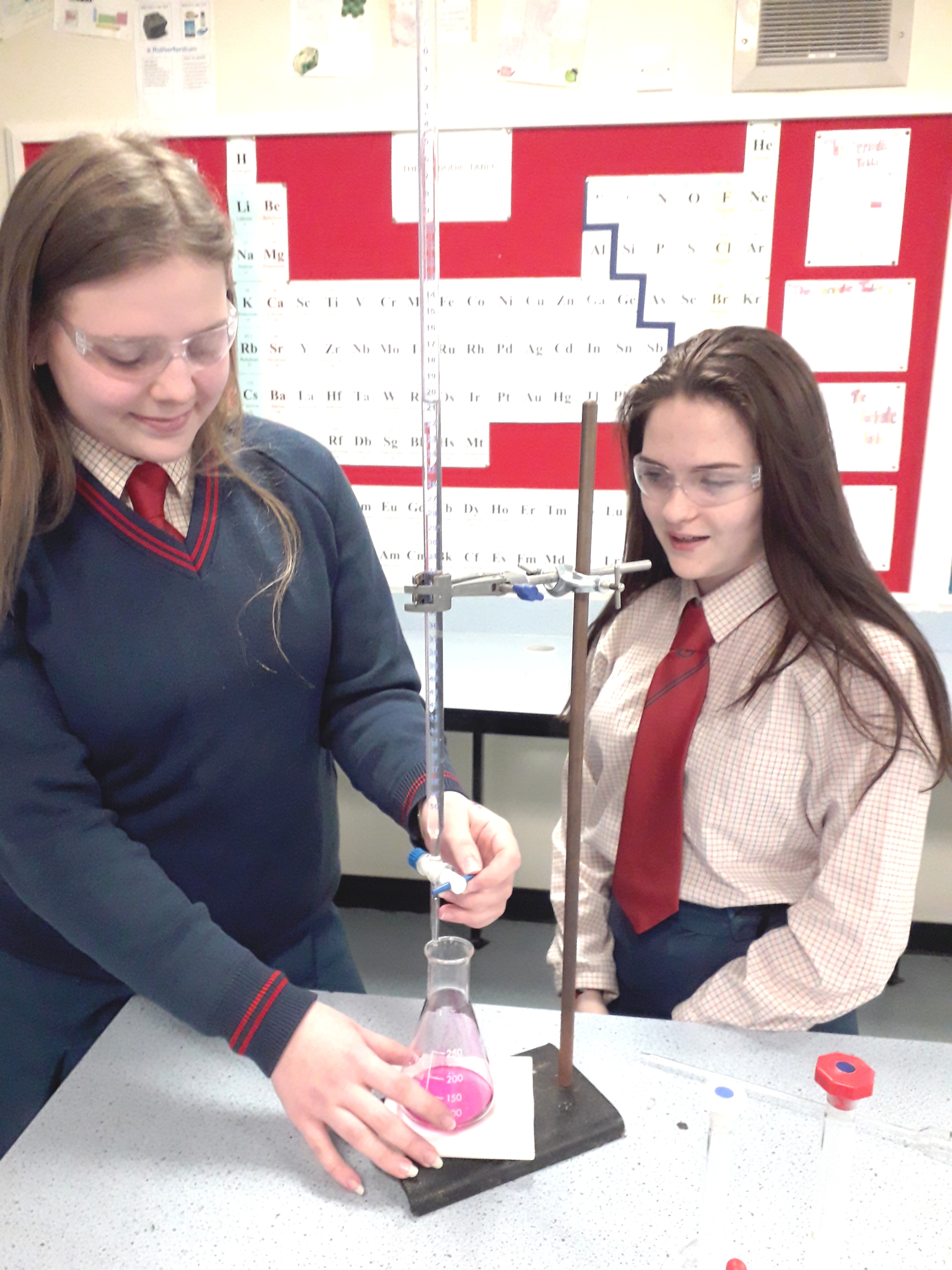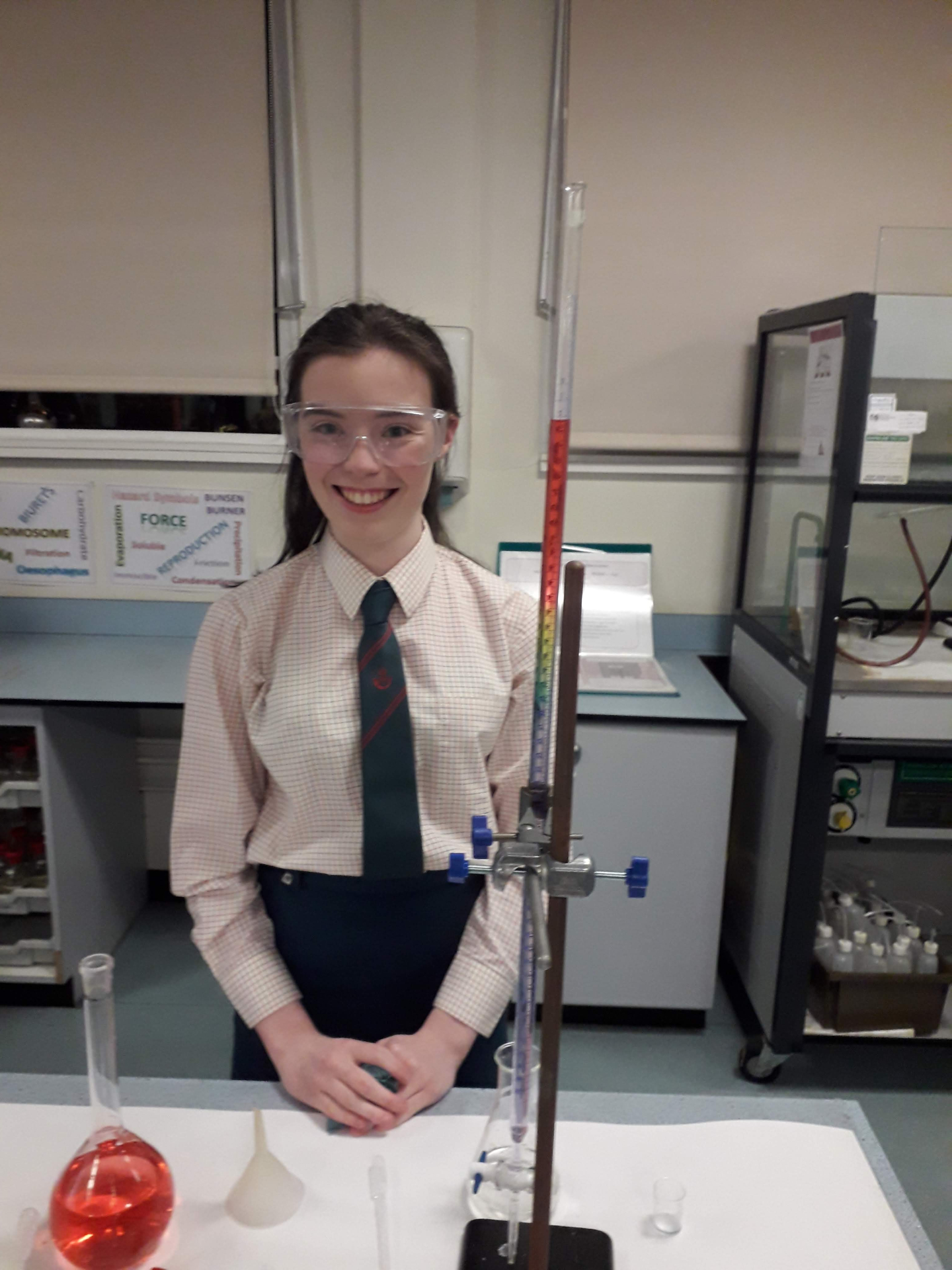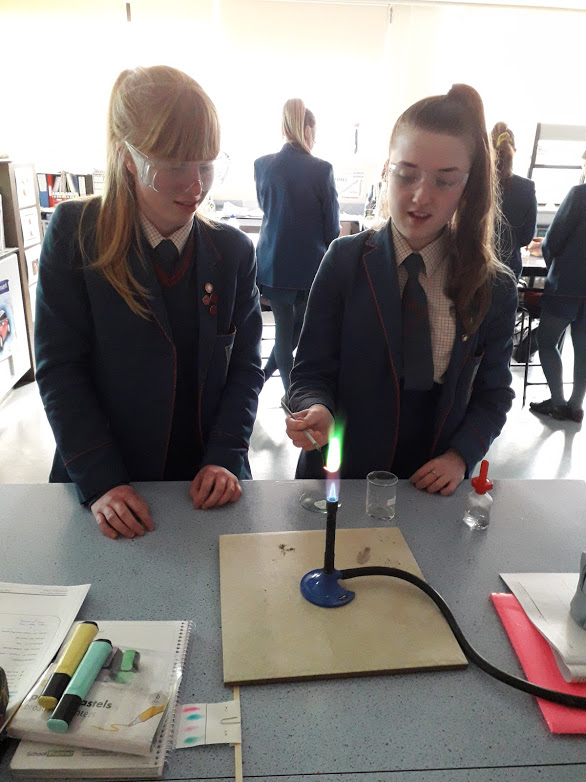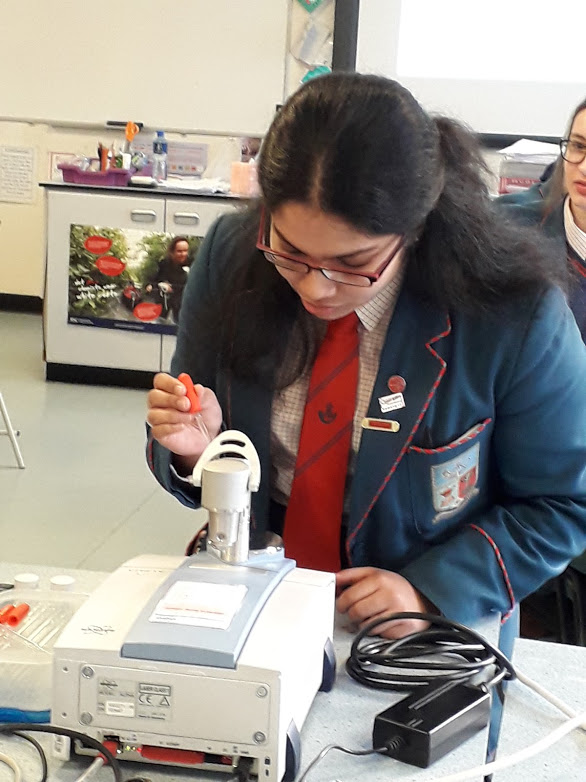Chemistry
Aims of the Department
- To stimulate curiosity, interest and enjoyment of Chemistry
- To help students develop safe experimental and investigative abilities
- Endeavour to equip our students with transferable skills (such as independent learning, critical thinking, oral and written communication and team work)
- Enable our students to thrive in higher education and the workplace
Accommodation
The department has two fully equipped teaching laboratories and a prep room in modern and inviting facilities.
Curriculum
Chemistry is taught at all stages within the school curriculum.
Key Stage 3
All students study Chemistry:
Years 8 and 9 study Chemistry as a component of a general science course (3 x one hour periods per week) based on the Revised Curriculum of Northern Ireland and chemistry topics include: Separation Techniques, Acids and Alkalis and Material Chemistry.
Year 10 students study Chemistry as a stand-alone subject (1 x one hour period per week) and are taught by Chemistry specialists. This allows the students to make informed decisions prior to making their choices for GCSE. Topics covered include the Periodic Table and Chemical Reactions.
Key Stage 4
The students have the option of incorporating Chemistry into their GCSE choices through either Double Award Science or Single Award Science, both of which are offered through CCEA.
Advanced Level
A-level Chemistry is taught following the CCEA specifications. Chemistry A-level is divided into 6 modules and builds on all the skills and knowledge obtained at GCSE:
AS Chemistry is taught by Chemistry specialists over 4 x one hour periods per week and is composed of 3 modules:
Unit AS 1: Basic Concepts in Physical and Inorganic Chemistry
Unit AS 2: Further Physical and Inorganic Chemistry and an Introduction to Organic Chemistry
Unit AS 3: Basic Practical Chemistry.
AS Chemistry contributes to 40% of the A2 qualification.
A2 Chemistry is also taught by Chemistry specialists over 5 x one hour periods per week and is again composed of 3 modules:
Unit A2 1: Further Physical and Organic Chemistry
Unit A2 2: Analytical, Transition Metals, Electrochemistry and Organic Nitrogen Chemistry
Unit A2 3: Further Practical Chemistry.
A2 Chemistry units contributes to 60% of the A2 qualification.
Life and Health Sciences is also offered as a Post-16 option. At AS this incorporates a unit involving Industrial Chemistry Processes and then at A2 a unit concerning the study of Organic Chemistry.
Why study Chemistry?
Chemistry is a high profile subject and is recognised as a strong academic qualification across the board when applying for university courses.
Chemistry is often a pre-requisite for entry to a wide range of courses leading to occupations such as:
- Medicine
- Dentistry
- Pharmacy
- Nursing
- Veterinary Science
- Chemical Engineering
- Teaching
Furthermore, students at all Key Stages are afforded the opportunities, as they arise, to avail of a wide range of Chemistry-based activities provided by outside agencies, for example: events run by Queen’s University, The Royal Society of Chemistry and The Salters’ Institute.

